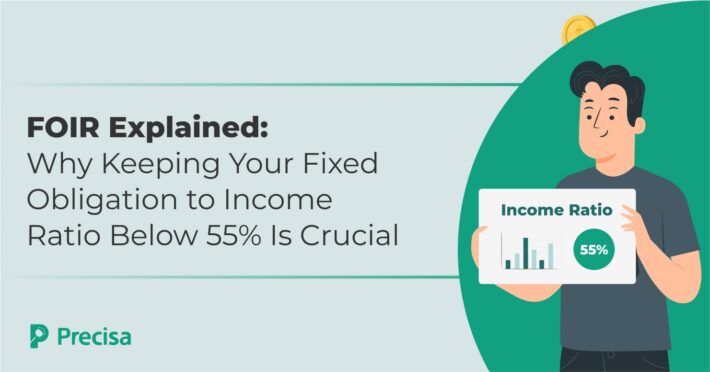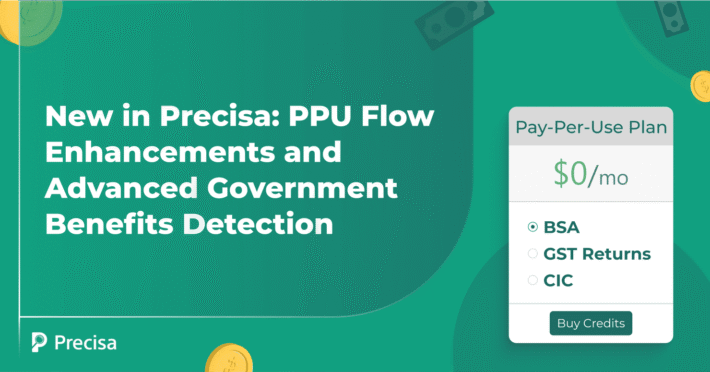Decoding Budget 2022 and Its Impact on Fintechs

The economic multiplier has been set in action by Budget 2022, which focuses on quick, holistic, and inclusive economic growth. In addition, the Finance Minister has given the rural sector a strong push and raised budgetary allocations for the MSME sector—while fostering an environment favourable to the development of start-ups in the country. These projects will become important drivers of better livelihood in India when taken together.
The fintech sector, which can act as a catalyst for this growth, is at the heart of it all. The importance of the fintech sector in moving the needle is recognised in Budget 2022.
The three-pronged approach of strengthening the core, permitting expansion, and compounding its effects, as envisioned by the government, would set in motion the multiplier effect.
By establishing a digital economy and a thriving fintech ecosystem, the Union Budget 2022 has accomplished a delicate balance between macro-growth and all-inclusive welfare.
It comprises several exciting initiatives that will aid prospective entrepreneurs, fintechs, and the startup ecosystem succeed.
Union Budget 2022: Five Key Takeaways for Fintechs
The Finance Minister’s budget centred on four development pillars: inclusive development, energy transition, productivity enhancement, and climate action. The budget lays forth a roadmap for the Indian economy from 75 to 100.
According to the fintech and financial sectors, the Union Budget seems to be favourable and centred on an economic recovery mindset, with the pandemic and its consequences as its basis.
Hence, it is a growth-oriented budget that includes a bevvy of initiatives to boost consumption, investment, and economic recovery in the wake of the pandemic.
The following are the major takeaways for the fintech sector from Budget 2022-23:
- The Finance Minister declared that, beginning in 2022-23, the Reserve Bank of India will issue a digital rupee using Blockchain technology and that cryptocurrencies will be subject to a 30% tax, regardless of whether they are held for a short or long time.
- It was also recommended to tax any income derived from the transfer of any virtual digital asset at a rate of 30%.
- It was also recommended to impose a 1% TDS on payments made about the transfer of virtual digital assets beyond a monetary threshold to capture transaction details.
- The budget proposed that 75 Digital Banking Units (DBUs) be established in 75 districts. In addition, to increase financial inclusion, all the post offices will be connected to the central banking system.
- The Finance Minister stated that the financial assistance promised in the previous year’s Budget for the digital payment ecosystem would be continued in 2022-23. There will also be a focus on promoting cost-effective and user-friendly payment services.
Budget 2022 Reaction of and Impact on Fintechs
The Finance Minister has presented a budget that is both bold and growth-oriented. Digitisation, infrastructure development, innovation, and entrepreneurship will all be accelerated.
The Union Budget 2022 will promote long-term economic growth and sustainability.
Strengthening fintech
The resilience of the digital infrastructure and the availability of competent experts to drive innovation are two significant aspects that determine the effectiveness of the fintech sector.
The government has taken an enormous step forward in extending India’s digital infrastructure by connecting all 1.5 lakh post offices to the central banking system.
India’s fintech system is a silver lining in the challenging lockdown times and the pandemic.
The country has been enthusiastic about digital payments, and the current budget has added to that enthusiasm by introducing 75 digital banking units in 75 districts.
In addition, incorporating 1.5 lakh post offices into the banking system and enabling digital infrastructure will promote financial inclusion and speed up the transition of the micro economy into the mainstream banking system.
Fintech education
The most important resource for any industry to thrive and prosper is talent. The government’s focus on improving fintech education is an excellent long-term step forward.
To take full advantage of this expanding digital infrastructure, fintech businesses will need well-trained minds. Therefore, this budget not only includes funding for the creation of a Desh Stack e-portal platform to facilitate the acquisition of new skills, but it also allows world-renowned institutions to open offices in Gift City to train Indian minds in financial management and fintech.
The idea of establishing world-class overseas universities and educational institutions within GIFT City to conduct non-locally regulated courses in financial management, technology, fintech sciences, engineering, and mathematics, is a significant step forward.
This will ensure that the startup and fintech sectors consistently supply high-quality resources. Moreover, these steps will enable India’s youth to explore prospects in these industries, and the fintech sector will tap into the country’s innovation pool.
Digital currency
The anticipated introduction of digital currency was the icing on the cake. In the coming fiscal year, the FM announced the launch of India’s digital currency.
She recommended implementing Digital Rupee, using blockchain and other technologies, issuing the RBI from 2022-23. With this, India will join the ranks of countries with their own central bank digital currency (CBDC), which is a virtual representation of a fiat currency.
From the perspective of the fintech industry, this will drive more innovation and deepen the already booming collaborations between legacy financial institutions and new-age fintech innovators.
Enabling fintech growth at a faster pace
A thriving fintech sector requires more growth opportunities, which can only be realised by broadening access to fintech services while also broadening the base of fintech acceptance.
Even though India has the most excellent fintech adoption rate at 87%, this budget has allowed the sector to reach a total 100% adoption rate.
To begin with, by increasing its stake in the industry beyond the National Payments Corporation of India (NPCI), the government has recognised fintech’s importance and facilitated its rapid expansion.
In addition, the government’s intention to create theme funds for emerging industries like the digital economy is a positive step that would make it easier for entrepreneurs to acquire cash and make them more appealing to investors due to their potential for wealth generation.
Establishing an expert committee to recommend measures to help attract investment and extending the tax incentive period for start-ups by one year after formation will undoubtedly aid in creating a strong startup ecosystem, providing fintech companies with a boost.
Second, the government is committed to launching Central Bank Digital Currencies, connecting post offices to central banking systems, and establishing 75 digital banks.
This step would broaden the breadth of Indian financial inclusion and boost the public’s access to fintech services. In addition, fintech companies will target and grow in a larger market due to this.
Final Thoughts
The government has just set the tone for India’s fintech influence by taking these well-thought-out actions in the budget. Fintech currently plays a vital role in offering inexpensive and quick lending and financial services to MSMEs and start-ups in the country, assisting them in their growth.
Furthermore, with more trained minds and more innovation, the fintech sector will be positioned at a crossroads, where it will be a crucial driver for digital enablement and a major driver for India’s livelihood, producing a compounding effect.
The Budget 2022-23 includes all the necessary ingredients and a recipe. The fintech sector now has the obligation of acting as a chef and combining the ingredients to produce an economic multiplier that will result in a new, healthy Indian economy.
A plethora of practical solutions has developed on the market to satisfy the needs of fintech and lending institutions. Precisa is an online bank statement analysis tool that banks and fintech companies can use to process and analyse potential loan applicants’ bank statements.
Precisa offers good transparency before loan disbursement and may be simply incorporated into your existing system via APIs. To find out more, take advantage of our 14-day free trial.




